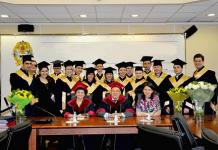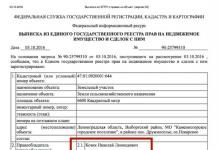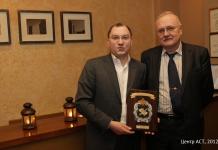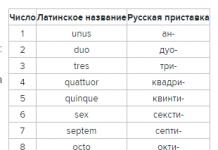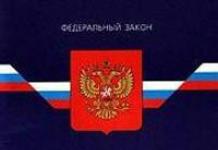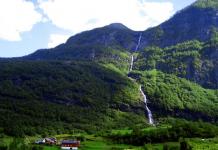From the books of L. Fevre (1878-1956), “Fights for History” (M. 1991) was translated into Russian - a collection of his methodological articles from different years. At the origins of the scientific current was the great historian of the twentieth century, Lucien Febvre. In 1929, he founded a historical journal, now called Annaly. Economies, societies, civilizations” (“Annales. Economies. Societes. Civilizations”). That was an event that had a huge impact on the further development of historical science in France, and then in other countries, and therefore the "New Historical Science" is often called the "Annals School", although the Annalists themselves prefer not to talk about the "school", which implies adherence to certain scientific canons and a unified methodology, but about the "spirit of the Annals".
Instead of narrative historiography, which slavishly followed historical texts and focused on restoring the course of political events, Febvre put forward the principle of "history is a problem." The historian formulates the problem and, in the light of it, selects those monuments whose analysis can serve as a source of knowledge on this problem. The problems of history are dictated to the researcher by modernity; but she dictates them to him not in some opportunistic, momentary plan, but in the sense that the historian asks the past those questions that are essential for the present and the asking of which makes it possible to start a productive dialogue with people of another era.
L. Febvre emphasized the importance of the researcher's creative activity. In a sense, he "creates" his sources. What does this mean? A monument of the past, a text or material remnants are in themselves mute and uninformative. They become historical sources only insofar as they are included by the historian in the sphere of his analysis, insofar as they are asked the appropriate questions, and insofar as the historian has been able to develop principles for their analysis. Putting forward new problems of historical research, L. Febvre turned to such categories of monuments that had previously remained little studied or not studied at all. He again approached the study of monuments that were already in scientific circulation. In the laboratories of the founders of the "Annals" and their followers, the source base of history has undergone a significant update and expansion.
Having substantiated the new principles of historical research, the creators of the Annals brought to the fore the creative activity of the historian. The revision of the methods of historical science carried out by them was rightfully regarded later as a "Copernican revolution", as a "revolution in historical knowledge".
L. Febvre emphasized: modernity should not "crush" history; questioning people of the past, the historian in no way imposes answers on them - he carefully listens to their voice and tries to reconstruct their social and spiritual world. The study of history is nothing but a dialogue between modernity and the past, a dialogue in which the historian addresses the creator of the monument he is studying, be it a chronicle, a poem, a legal document, a tool, or a configuration of an arable field. In order to understand the meaning of the statement contained in the historical source, that is, to correctly decipher the message of its author, one must proceed not from the idea that people have always, throughout history, thought and felt the same way, just as we ourselves feel and think, on the contrary, incomparably more productive is the hypothesis that a different consciousness is imprinted in the historical source, that before us is the “Other”.
Having uttered this word, we thereby approached the very essence of L. Febvre's creativity. The pathos of the diverse scientific interests of L. Fevre lies in the study of the problem: what was a person in a distant era of history, what is the secret of his originality, dissimilarity with us of the one who was our predecessor.
n1.doc
Lucien Febvre
CIVILIZATION:
EVOLUTION OF A WORD AND A GROUP OF IDEAS
Tracing the history of a word - such work is never in vain. Whether this journey is short or long, monotonous, full of adventures, it is instructive in any case. One can, however, count a dozen terms in the vast lexicon of culture, no more, rather less, the past of which should be studied not just by an erudite scientist but by a historian - yes, a historian in full sense this word. These terms, the meaning of which, more or less roughly outlined by dictionaries, continues to evolve with the development of human knowledge, appear before us enriched, so to speak, by the whole history through which they have passed. These terms alone are sufficient to trace and accurately measure (with some delay, because language is not a quick means of registration) the transformation of a group of fundamental concepts; a person likes to consider them unshakable, since their inviolability, as it were, guarantees him confidence and security. To recreate the history of the French word "civilization" in fact means to reconstruct the stages of the deepest revolution that French thought made and through which passed from the second half of the 18th century to our time. And thus to cover with a glance - from a special point of view - history, the interest and significance of which are not limited to the borders of one state. Even a brief preliminary outline of this revolution, which is given below, made it possible, perhaps, to more accurately date its stages. In any case, he will once again show the following: the rhythm of the waves that rock our society, what ultimately determines this rhythm establishes it - this is not the progress of some particular science and thoughts circulating in the same sphere - this is progress all disciplines, all knowledge that helps each other.
1* Let us note in brackets that not a single venerable historian has thought of it, not a single young historian has come up with his mind to devote an in-depth study to the history of any of these words - say, a doctoral dissertation. This perfectly depicts the state of not material, but spiritual disorganization, in which research on modern history still resides. There are monographs of this kind in the field ancient history, and we know how useful and instructive they are. It is clear that writing such monographs is not easy - this requires historians with a great philosophical culture: aves gagae [rare birds]. There are, however, and such; and if not, then care must be taken to educate them.
Let's clearly define the problem. A few months ago, the Sorbonne defended his dissertation. It was about the Tupi-Guarani civilization. These Tupi-Guarani. tribes South America, fully correspond to what our fathers called the word "savages". However, the idea of the civilizations of the uncivilized tribes has long become commonplace. Without much surprise, we would have learned that a certain archaeologist (if archeology delivered such materials to him) began to talk about the civilization of the Huns - the very Huns about whom we were taught recently that they were the "scourge of civilization." Meanwhile, our newspapers and magazines, and we ourselves, do not stop talking about the successes, conquests and benefits of civilization. Now with conviction, now with irony, sometimes with bitterness. But anyway, we talk. What does this indicate, if not that the same word serves to designate two different concepts? In the first case, the word "civilization" for us simply means the totality of properties and features that the collective life of a certain human group reveals to the observer: material, intellectual, moral, political life and (what can we replace this unfortunate expression with?) - social life. It was this that was proposed to be called the "ethnographic concept of civilization" 2*. On the one hand, it does not contain any value judgment - neither about individual facts, nor even about the totality of the studied data. On the other hand, it has nothing to do with individual individuals, taken by themselves, with their individual reactions, with their behavior and actions. It belongs primarily to the category of "collective".
In the second case, when we talk about the successes or declines, about the greatness and weaknesses of civilization, we, of course, resort to evaluative judgments. We proceed from the premise that the civilization in question - our civilization - is something great and beautiful, as well as something nobler and more comfortable, better both morally and materially than what is not civilization - rather than savagery, barbarism or semi-civilization. Of course, we are sure that this civilization, the participants and bearers of which we are parasites and propagandists, gives us all value, prestige, high dignity. For it is a collective good enjoyed by civilized societies. But it is also a personal privilege, and everyone proudly declares himself to be its owner.
So, in our language, which has a reputation for being clear and logical, the same word means two very different concepts. almost opposite. How did it happen? How and to what extent can the history of the word itself help to explain this riddle?
The word "civilization" appeared in the language recently. On the first page of his book "On Italy, on her attitude to freedom and modern civilization," André Lung Mazzii writes: "This word appeared in France, it was created by the French thought of the last century." Mazzini anticipates Nietzsche's letter to Strindberg, who in 1838 expressed regret at being a German: “There is no other civilization than the French. There is nothing to be said against this; it is the truth itself, and it is unconditionally true. Similar assertions, as we shall see later. they raise, but do not resolve, one rather important question. In any case, one thing remains indisputable: the word "civilization" (civilization) was coined on purpose and entered the language recently.
Who said it first, or at least - who printed it first? This we do not know. This recognition will not surprise anyone. Our tools are very poor - let's be honest, we are not armed at all to study the history of words that have recently appeared in our language. We have nothing but a series of "Dictionaries of the French Academy" (1694, 1718, 1740, 1762, 1798. 1835, 1878) and classical collections - from Furetier through the "Encyclopedia" to Littre, supplementing the fundamental publications mentioned above; apart from - in so far as it belongs to the -18th century - a few works, sensible, but brief and too general, such as Goen's study "Changes in the French language from 1710 to 1789" (1903) or Max Frey's "Changes in French vocabulary in the era of the Revolution of 1789-1800" (1925). And if I call these works too general, it is only because the facts compel us to do so: we are very short of two dozen dictionaries of the language of individual authors: the language of Montesquieu, Voltaire, Turgot, Rousseau, Condorcet and others - and only such works would allow us to write one of the most remarkable and recent chapters of that general history of French thought reflected in language, the importance and fruitfulness of which M. Ferdinand Bruno so convincingly proves in his "History French».
Anyone who has the intention to study the history of the word that appeared in XVIII century forced to search, to probe blindly, to wander through the boundless sea of literature, without having at his disposal any indexes or lexical codes that could help him. And for the sake of the result, which is not yet known whether it will be achieved, many hours of work are wasted. As for me, having spent a lot of time reading books, chosen according to the theme as far as possible, I did not find the word "civilization" in French texts printed before 1766.
I know that the appearance of this neologism is usually attributed to earlier times, to the speeches of the young Turgot at the Sorbonne. Goen's work gives the date of birth of the word "civilization" "about 1752" and gives a reference - "Turgot, II, 674" 4*. Obviously, what is meant is not Schell's edition - it is the only and authoritative one - but the edition of Der and Dussard, two volumes of which, printed according to the edition of Dupont de Nemours, appeared in the "Collected Works of the Most Eminent Economists" in 1844. In this edition, published, or rather reprinted, in the second volume (p. 671) “Thoughts and fragments that were put on paper to be used in any of the three works on world history, or On the Progress and Decline of the Sciences and Arts. On page 674 one reads: "At the beginning of civilization, success" can be, and especially seems to be, swift." Unfortunately, the word "civilization" in all likelihood does not belong to Turgot, but to Dupont de Nemours, who could use it in a quite natural way, publishing the works of his teacher much later. This word cannot be found in the text reproduced by Mr. Schell directly from the manuscripts 6*. We do not find the word "civilization" either in the speeches of 1750, or in the letter of 1751 to Madame de Graffigny about the "Letters of the Peruvian", or in the article "Etymology" in the "Encyclopedia" (1756). In all these works 7* the meaning often requires, in our opinion, the very word that the prior of the Sorbonne 1 supposedly ventured in 1750; however, he never uses it; he does not even use the verb "civilize" (civiliser), the participle "civilized" (civilise), which were already in use. He adheres to the words "police" and "police" - in short, it turns out that for the only time in his life he wrote on paper a word that he never used again and, let's add, that none of his contemporaries dared to use after that for more than ten years: neither Rousseau in his Discourse, which won an award in Dijon in 1750, nor Duclos in his Meditations on the Morals of Our Age (1751), nor Helvetia in his On the Mind; We will not expand the list.
So, only in 1766 we find the word of interest to us in printed form. This year in Amsterdam, Rey published in two different editions (one in-quarto, the other three volumes in-12°) Antiquity Revealed in its Customs by the recently deceased M. Boulanger. In the third volume of edition in-12 we read: “When a savage people becomes civilized, in no case should the act of civilization be considered completed after clear and indisputable laws have been given to the people: it is necessary that they regard the legislation given to them as a continuing civilization " 8* . This original and very successful expression is in italics. Antiquity was published posthumously: the author died in 1759. Thus, the word could be dated at the latest this year - if we did not know that there was a person who supplemented, if not revised the manuscript of the late engineer of bridges and roads Boulanger, so that it would see the light. And this man was the great creator of neologisms in the face of eternity, Baron de Holbach, who wrote, for example, in 1773 in his “System of Society”: “In society, a person is electrified,” and this is two years after the History Electricity" Priestley 9*. And here is what a surprising circumstance: de Holbach uses the word "civilization" in his "System of Society" 10*. And Boulanger - never, never, with the exception of the phrase quoted above. I have carefully read An Inquiry into the Origin of Oriental Despotism, posthumously published in 1761 by "Mr. B. I. D. P. E. C." *; the word "civilized" is quite rare there; "civilization" never met; usually "police" and "police". The example cited above seems to be the only one in the literary heritage of Boulanger, but not in the legacy of de Holbach. One way or another, the fact is there. Before us is one case of the use of the word, dated 1766. I do not claim that he is the first, and I express the wish that other, more successful seekers take away the laurels (however, rather modest ones) from Boulanger or de Holbach.
The word did not go unnoticed. In the interval between 1765 and 1775, it receives the rights of citizenship. In 1767, Abbe Baudot, in turn, uses it in the Citizen's Calendar 11 * and states that "the right to land ownership is a very important step towards the most perfect civilization." Somewhat later, in 1771, he again returns to this word in his "First Introduction to Economic Philosophy, or Analysis of the Civilized States" 12*. Raynal follows his example in his Philosophical and Political History of the Administration and Commerce of the Europeans in the Two Indies, in Book XIX of this work he uses the new word many times. Diderot, in turn, dares to use it in 1773-1774 in his "Systematic refutation of the book of Helvetius" On man "" 14 *. However, this word is not found everywhere. historical epochs" - the first volume of this work was published in Amsterdam in 1772 - brother Jean de Chastelle writes a lot about "police", but, it seems, never about "civilization" 15 * Buffon, a purist author, although he uses the verb and participle , apparently ignores the noun in his "Ages of Nature" (1774-1779).The same - Antoine Yves Goghe in the book "On the origin of laws, arts and sciences and their development among ancient peoples" (1778) - in the book, where one could hope to meet this word.In contrast, Demeigner in "The Spirit of different peoples(1776) speaks of the "successes of civilization" 16*. Little by little the word became less
rare. As the revolution approaches, the word "civilization" celebrates victory. And in 1798, for the first time, it made its way into the Dictionary of the Academy, which until that time ignored this word, just as the Encyclopedia and even the Methodological Encyclopedia ignored it. Only the Trev Dictionary gave it a place, but only to give the word its old judicial meaning: "Civilization," a legal term. A court decision that transfers the criminal process to the category of civil processes” 19*.
Thus, during the period from 1765 to 1798, the term, which we now cannot do without, was born, gained strength and won recognition in France. However, one problem arises here, which, in turn, can only be solved with the help of a happy accident.
If you open the second volume " English dictionary» Murray, if you look for history in him English word, which, apart from one letter, is an exact tracing-paper of the French word "civilisation", you will find remarkable quote from Boswell 20*. He tells how, on March 23, 1772, he went to old man Johnson, who was working on the fourth edition of his dictionary. I quote his words in translation: "Jones does not want to place the word 'civilization', but only 'civilization'." And although I have great respect for his opinion, I thought that the word "civilization", which comes from "civilize", better than "civilization", conveys a meaning opposite to "barbarism" ". This passage is very curious. 1772: we know how many intellectual connections there were between the English and French intellectual elites, so one cannot help but ask oneself the question: was there any borrowing, but who borrowed from whom?
Murray does not pass texts earlier than the passage from Boswell, where the word "civilization" would mean "culture". This text is from 1772; text by Boulanger 1766, no later: five years difference. That's not a lot. There is, however, a text that seems to confirm that french word came before English. In 1771 in Amsterdam came out french translation Robertson's History of the Reign of Emperor Charles V 21*. Naturally, I became interested in this work, which could somehow help in solving the problem of the origin of the word "civilization". And in the Introduction (p. 23) I read the following phrase: “We need to follow the rapid steps that they (the northern peoples. - L.F.) made from barbarism to civilization” - and a little further I came across another phrase, namely : "The most vicious state of human society is when people have lost ... the simplicity of primitive customs and have not reached such a stage of civilization when feelings of justice and decency serve as a bridle for wild and cruel passions." I then turned to the English text, A View of Social Development in Europe, which opens this well-known book. In both cases, the word translated by the French translator as "civilization" is not "civilization" but "refinement".
This fact is significant. He certainly detracts from the role that could be attributed to the Scots in the introduction into use, in the introduction of a new word. In France, of course, it can be found in translations, for example, in Notes on the Principles of Social Order by Glasgow Professor J. Millar 22*. And Grimm, announcing the publication of this book in his Correspondence litteraire (November 1773), takes the opportunity to use the word "civilization" 23*. However, in those days this was no longer unusual. The word is, of course, found in Robertson's History of America; but the book is dated 1790. Finally, naturally, we find it in the translation of Adam Smith's Inquiry into the Nature and Causes of the Wealth of Nations; the translation was made by Rouche and provided with comments by Condorcet 25*. He came out in 1790. These are examples chosen among many others. They do not allow us to conclude that the word came to France from Scotland or England. Pending further information, Robertson's text rules out such a hypothesis.
2* Niceforo A. Les indices numeriques de la civilization et du progres. P., 1921.
3* Cited. Quoted from: Counson, A. Qu "est ce qne la civilization? Bruxelles. 1923 Idem. La civilization, action de la science sur la loi. P., 1929. P. 18? .. 188, not.
4* Cited. Quoted from: Counson A. Qu "est ce que la civilization? P. 11.
5* As Mr. Schell reliably established, for Dupont de Nemours it was business as usual: he treated Turgot's texts very freely.
6* The word "civilization" appears, however, in the first volume of the works
Turgot (Targot A. R. 1. Oeuvres et documents le concentrant / Ed. G. Shell.
P., 1913), but only in a summary prefaced by the "Philosophical Picture of the Successive Progress of the Human Mind". This summary is written by Mr. Schell.
7* All collected in the first volume of Turgot's Works.
8* Boulanger N. A. L "Antiquite devoilee par ses usages. Amsterdam, 1766. Liv. 6, ch. 11. P. 404-405.
9* Holbach P. H. de. Systeme social. Vol. 1-3. L., 1773. Vol. 1, ch. 16. P. 204; Pristley 1. Histoire de l "electricite. P., 1771.
10* "The complete civilization of peoples and the leaders who lead them ... can only be the result of the work of centuries" (Holbach P. H. de. Systeme social. Vol. 1, ch. 16. P. 210). In this work, the words "civilize", "civilized" are used constantly, just as in "The System of Nature" (1770), where I did not find the word "civilization".
* The abbreviation stands for: Boulanger, ingenieur des ponts et chaussees - Boulanger, engineer of bridges and roads.
11* Baudeau L. Ephemerides du citoyen. P., 1767. P. 82.
12* “In the state in which the civilization of Europe now finds itself” (Baudeau L. Premiere introduction a la Philosophie economique, ou Analyze des Etats polices. P., 1771. Ch. 6, art. 6. P. 817).
13* “The liberation from slavery, or, what is the same, called by a different name, the civilization of some kingdom, is a long and difficult matter ... The civilization of states was more the fruit of circumstances than the result of the wisdom of sovereigns” (Raynal G. Th. F. Histoire philosophique et politique des etablissements et du commerce des Europeans dans les deux Indes, Geneve, 1781, vol. 10, ch. XIX, pp. 27, 28). About Russia: "The climate of this country - does it favor civilization?"; “We ask: is civilization possible without justice?” (R. 29); “Mysterious, mysterious circumstances that delay ... the progress of civilization” (T. 1. R. 60).
14 * “I think that in a similar way there is some stage of civilization that is more in line with the happiness of man in general” (Diderot D. Refutation suivie de l "ouvrage de Helvetius intitule l" Homme / / Oeuvres completes / Ed. J. Assezat, M Tourneaux, P. 1875, vol. 2, p. 431),
15* Of course, he uses the words "civilized", "civilize": "Who are they - civilized people?" (Chastellux J. de. De la felicite publique et considerations sur la sort des hommes dans les differentes epoques de l "histoire. Amsterdam, 1772. T. 1. P. 10); “Rejoice that Tsar Peter began to civilize these northern lands ", etc. (Ibid. Vol. 2, ch. 10, R. 121).
16* In Introduction; see: Van Gennep A. Religions, moeurs et legendes // Mercuro de France. Ser. 3. 1911. P. 21 sqq.
17* The texts are innumerable. A few examples: 1787, Condorcet. “The Life of Voltaire”: “The more widely civilization spreads over the Earth, the more wars and conquests will disappear” (cited in: Jaures J. Histoire socialiste de la Revolution francaise. P., 1902. T. 2: La Convention. P .151 sqq); 1791, Boissel. "Catechism of the human race"; 1793, Billaud-Varenne. "Elements of Republicanism"; 1795, Condorcet: "The first stage of civilization in which the human race could be seen"; “Between this stage of civilization and that on which savage tribes still dwell”; "All epochs of civilization"; “Peoples. who have reached a very high level of civilization ", etc. (Condor cet M. J. A. N. Esquisse d "un tableau historique des progres de l" esprit humain. P., 1795. P. 5, 11, 28, 38) 2; 1796, Lamarck: "He (the Japanese people. - L. F.) retained that share of freedom, which is permissible in the conditions of civilization" (Voyages de C. P. Thunberg au Japon, traduits par L. Laig les et revus par J. - B. Lamarck, P., an IV (1796), t. 1. Introduction). Finally, the word became so commonplace that on Messidor 12 of the 6th year (June 30, 1798), on the eve of the landing in Egypt, on board the Vostok, Bonaparte wrote in a proclamation: “Soldiers, conquests are ahead of you, the impact of which on civilization and trade throughout the world will be immeasurable. We have tried to pick up examples little by little from different categories of texts of that time.
18* Thus, Littre makes a gross mistake when in his "Dictionary", in the article "Civilization" (generally very mediocre), he claims that "the word appeared in the Academic Dictionary only in the edition of 1835 and began to be widely used only modern writers - when social thought focused on social development.
19* Dictionnaire universel francais et latin, nouvelle edition, corrigee, avec les additions. Nancy, 1740. The 1762 edition of the "Academic Dictionary" was enriched with many words that were not in the 1740 edition (according to Goen, 5217 words), which indicates an expansion of the Dictionary concept. It is all the more remarkable that the word "civilization" is not in the Dictionary. The 1798 edition records 1887 new words and, most importantly, reveals a new trend: it pays attention to the philosophical meaning of all new words; it is no longer limited to registering the use of a word: it expresses judgments. However, the definition of 1798 is simple, but inexpressive: "Civilization is a civilizing act or a state of being civilized." All dictionaries repeat this definition until we read in The Complete Dictionary of the French Language from early XVII centuries to the present day”: “Neologism; in a broad sense, the advancement of mankind in the moral, intellectual and other aspects ”(Dictionnaire general de la langue francaise du commencement du XVII siecle a nosjours / Ed. G. Hatzfeld, J. Darmesteter, A. Thomas. P., . S. v. "Civilisation").
20* Murray J. A. A New English Dictionary. Oxford, 1893. Vol. 2. S.v. "Civilization" (1772, Boswell. Johnson XXV).
21* The first English edition appeared in 1769.
22* “The Influence of the Successes of Civilization and Government” (Preface, p. XVI), section of the second chapter of the fourth (p. 304) is called: “Changes taking place in the government of the people under the influence of its successes in civilization.” IN English text the section of the second chapter of the fifth (p. 347) is entitled: "The commonly observed influence of wealth and civilization on the treatment of servants" (Millar J. Observations sur les commencements
de la society. P., 1773. P. XVI, 304, 347).
23* Successive advances of civilization... first advances of civilization (Grimm F. M. Oeuvres/Ed. M. Tourneux. P., 1879. P. 164).
24 * Robertson W. Histoire de l "Amerique. P., 1790. T. 2. P. 164
25* "Peoples ... in all likelihood, the first to reach civilization, are those to whom nature gave home to the shores of the Mediterranean Sea" (Smith A. Kecherches sur la richesse des Nations. P., 1790. T. 1, ch. 3 P. 40). The translation was made from the fourth edition.
However, be that as it may, the use of this word in English language, as well as in French generates new problem. On both sides of the English Channel, the verb "civiliser" ("to, and before Furetier, who wrote in 1690: "Police" - the law, the rules of conduct that must be observed for the existence and maintenance of the state and human societies in general; opposed to barbarism. " And he gives such an example of the use of the word: "The savages of America - when it was only opened - had neither laws nor police. " Fenelon wrote the same about the Cyclopes: "They do not know the law, they do not follow any police rules." Thirty years later Years after Furetier Delamare, writing his voluminous and very valuable "Treatise on police", in the first dedication of the first book defines the main idea of "police"; he recalls the very general meaning that this word had for a long time. they sometimes use, - he explains, - in the sense of the general management of any state, and in this meaning "police" can be divided into Monarchy, Aristocracy and Democracy ... "In other cases, the word means the management of each state separately, and then" police ” is subdivided into “police ecclesiastique” [ecclesiastical authority], “police civile” [civil authority] and “police militaire” [military authority] 40*. These values were already obsolete and out of use at that time. Delamare, who was an expert in these matters, insisted that the word "police" should be used in a narrow sense. After quoting Le Bret and his treatise on the sovereignty of the king, he writes: "Usually - and in a more limited sense - the word "police" we understand as public order in any city, and custom has associated it with this meaning to such an extent that every time when it is pronounced on its own and without continuation, it is understood only in this sense. "41* Delamare was right. And yet, a few years later, writers who were more interested in general ideas than terminological precision showed a tendency to give the word "police "The meaning is less narrow, less specifically legal, connected with legality and government. And this fact is of paramount importance for us.
In 1731, Duclos, in his Meditations on the Morals of Our Time, speaking of the peoples "polices", noted that they "stand higher than the peoples of the "polis", for the peoples of the "polis" "are not always the most virtuous" 42*. adds that while among savage peoples "strength gives nobility and honor" among people, then among the "rolices" the situation is different. With them "strength is subject to laws that prevent and tame its rampage", and "the truest and most deserved honor is given spiritual quality." 43* An interesting remark for that time: it turns out that at the same time that people involved in administration, as well as purists and professional linguists, sought to expel the "ambiguity" that made it difficult to use the word "police", Duclos, on the contrary, to the traditional to the meaning of this word, predominantly political and associated with legality, added a new meaning - moral and intellectual. He was not alone. Open the "Philosophy of History" (1736), which later became the "Introductory Discourse" to the "Experience on Morals". When Voltaire writes : "The Peruvians, being polices, deified the Sun", or: "The most polices peoples of Asia on this side of the Euphrates deified the stars", or more: "The question is more philosophical, in which all the great policees of the nation - from the Indus to Greece, were of the same opinion , is the question of the origin of good and evil” 44 * , when fourteen years later Rousseau wrote in his Dijon “Reasoning”: “Sciences, literature and arts ... make them love their slavery and make of them what are called peoples polices »; when in 1756 Turgot in the article “Etymology” noted that “the language of the police people is richer ... only he can give names to all the concepts that were absent from the wild people”, or extolled “the advantages that the light of reason gives to the police people” 45* , then it is obvious that all these people, who actively participated in the life, involved in the philosophical activities of their time, were busy searching - let's say, in such expressions that they would not object to - searching for a word that means triumph and the flowering of reason not only in the realm of law, politics and government, but also in the realm of moral, religious and intellectual.
The language did not give them such a word ready-made. The word "civilite", as we have seen, was no longer suitable. Turgot in 1750 still remained an adherent of the word "politesse" - that "politesse", which Voltaire declared in 1736 that it was not "something violent, unlike what is called "civilite"". And following Madame de Sevigne , who shortly before this complained: "I am like a wooden chock - far from any politesse; I don’t know if there is music in this world" 46 *, - after her, Turgot uses the same word when he addresses the king in high-flown expressions in his "Philosophical Picture" of 1750: "Oh, Louis! What greatness surrounds you! Your happy people have become the center of "politesse"!" Ceremonial phrase, in which some archaism is appropriate 47*. Indeed, there was not quite a suitable word to express exactly what the adjective "civilise" (civilized) means to us today. And in those times when all the work of thought was directed towards that. to ascribe superiority to peoples who not only observed "police", but were rich in philosophical, scientific, artistic, literary culture, to use a word for designating this new concept that had so long served to designate the old concept - this could only be a temporary and unsatisfactory way out. Moreover, as we have seen, the word “police”, on which the word “police” depended in one way or another, acquired an increasingly limited and “mundane” meaning. Meaning given by a character with fearsome and ever-increasing power: lieutenant de police 3.
And then they remembered the word that Descartes had already used in 1637, giving it a completely modern meaning - the word that Furetière translated as "to make someone civil poli", accompanying, however, with such an example: "The preaching of the Gospel civilized (a civilise) the wildest of the barbarian peoples" - or else: "The peasants are not as civilized as the bourgeois, and the bourgeois are not to the same extent as the courtiers"; These examples, as we see, allow for a very broad interpretation.
Who seized on the new term? Of course, not all. Turgot, for example, in his "Philosophical Picture", in the French text of his speeches at the Sorbonne, in the article "Etymology" does not use either "civiliser" or "civilise". The same is true of Helvetius in On the Mind: both are true to the term "police", as were many others in those days. But Voltaire very early began to use both words - "civilise" and "police". In the Philosophy of History, the word "police" occurs frequently. However, in chapter IX (“On theocracy”), the word “civilise” crept under the Voltaire pen. However, with a remark that betrays the author's doubts. “Among the peoples,” he writes, “who are so unfortunately called civilized (civilises)” 48* . Voltaire uses this "unfortunate" word once and twice in the Philosophy of History. “We see,” he notes, for example, “that morality is the same for all civilized peoples.” And in chapter XX we read: “The Egyptians could unite, become civilises, polices, skillful and enterprising, powerful only much later than those peoples that I listed above” 49*. A very interesting sequence: the formation of society; softening and use of mores; the establishment of natural laws; economic development and, finally, power. Voltaire weighed his words and did not give them to print without thinking. However, he still used two words where, twenty-five years later, Volney 50* in a curious passage from his "Explanations on the United States", trying to develop one of the ideas of Voltaire's Philosophy of History, will use only one of them, namely "civilise" , in an era when this word will enrich its content with all the content of the word "police". Voltaire's "dualism" allows us to clearly see the possibilities that language presented to the people of that time. They were tempted to include in the content of the word "police" the whole meaning of the words "civilite" and "politesse"; be that as it may, the word "police" resisted, and from the rear the word "police" - the police - greatly annoyed the innovators. As for the word "civilise", it was tempting to expand its meaning, but the word "police" resisted, it was still tenacious. To break his resistance, to express a new concept that was forming in the minds at that time, to give the word "civilise" new strength and put new content into it to make it something other than a substitute for the words "civil", "poli" and even partially "police", for all this a new word had to be created. In addition to the participle, in addition to the verb, the words "civilisation" - civilization will be required: the term is somewhat learned, but it did not surprise anyone; under the arches of the Palace of Justice, one could hear his sonorous syllables for a long time; and, very importantly, he did not have a compromising past. He was far enough from "civil" and "civilite" that these dilapidated relatives could interfere with him. It was a new word, and it expressed a new concept.
26* In any case, in the sense of culture, for in English, as well as in French, "civilization" in the judicial sense (which is given by the "Trevue's Dictionary") has existed for a long time. Murray gives examples relating to early XVIII century (Harris; Chambers' Encyclopedia, etc.).
27* Experiments. Book. 1. Chap. 25: About pedantry.
28* “So, I thought that those peoples who, being at first semi-savage and gradually becoming civilized, worked out their laws only insofar as they were forced to do so by the inconveniences resulting from crimes and strife - such peoples could not be so cultured and law-abiding (bien polices), like those who, from the very beginning, as soon as the unification of people took place, observed the decrees of some wise legislator. A little further on is another passage in which barbarism and savagery are characterized as devoid of reason: to a greater extent, endowed with reason ... ”Mr. Henri Berr pointed out these places to me (Descartes R. Discours de la Methode // Oeuvres / Ed. Ch. Adam. P., 1905. V. 6, pt 2. P. 12).
29* Moreover, it was in the 18th century that the number of verbs ending in "-iser" increased; Frey gives an impressive list of such verbs (see: Frey M. Les transformations du vocabulaire francais a l "epoque de la Revolution, 1793-1800. P., 1825. P. 21): centraliser, fanatiser, federaliser, municipalise, naturaliser, utiliser etc. However, before mr Gohen compiled for the era preceding the Revolution, another list of similar verbs, taken from the encyclopedists; among others, you can find "barbariser" there.
30* Voltaire. Essai sur les moeurs//Oeuvres completes / Ed. P. Beuchot. P., 1829. T. 15. P. 253, 256.
31* Rousseau J. J. Contrat social. P., 1762. Liv. 2, ch. 8.
32* The word "civilization" does not occur, as I have seen, in the Dijon Discourse of 1750 ("Was the revival of the sciences and arts conducive to the improvement of morals"). Rousseau uses only "police" and "police", as does Turgot in his Philosophical Picture of the Successive Progresses of the Human Reason (1750) or Duclos in Discourses on the Morals of Our Age (1751) and many of their contemporaries.
33 * Dictionnairo de l "ancienne langue francaise. P., 1881. Nicola Oresme's Ethics is also referred to in the Civilite article Hatzfeld, Darmsteter and Thomas in their Complete Dictionary.
* Along with other meanings (such as urban), the Latin word "urbanus" could have such as well-bred, educated; one of the meanings of the Latin word "civilis" is courteous.
34* The word “civiliser” [civilize] is defined by the same Fuuretier as follows: to make well-mannered and polite, sociable and amiable (example: “The preaching of the Gospel civilized the wildest of the barbarian tribes” - or: “The peasants are not as civilized as the bourgeois, but the bourgeois - not to the same extent as the courtiers).
35* "The words 'courtois' and 'affable'," writes Callier, "are now almost out of use among secular people; their place was taken by "civil" and "honnete" [here: courteous)" this "Dictionary" adds the meaning "town law".
36* Girard G. Les synonymes francois. 20 ed. P., 1780 (this edition revised by Bose). The first edition of Girard's work was published in 1718 (La justesse de la langue franchise ou les synonymes), the second - in 1736 (Les Synonymes francais), the third, revised by Bose - in 1769; republished in 1780.
37* Girard G. 9p. cit. T. 2. R. 159.
38* Voltaire. Essai sur les moeurs. Liv. 19.ch 16. It's about about the Chinese who, "desiring their people to live in peace", made it so that "the rules of courtesy received the greatest distribution and influence."
39* "The areas where the labor of people can give nothing but the necessary, should be inhabited by barbarian peoples: any kind of politic is impossible here"; “From this dual power there followed a constant conflict in matters of jurisdiction, which made it impossible for any good politic in Christian states” (Rousseau J. J. Op. cit. Liv. 3. ch. 8; Liv. 4. ch. 8). Godefroy cites the words "policie", "pollicie", "politie" as medieval forms and registers the ephemeral noun "policien" - a citizen, which was used by Amio.
40* Delamare N. Traite de la police. P., 1713. Liv. 1. P. 2. Sixty years later, Brother Jean de Chastellux noted that “down to our own day, the word police can mean ‘governing the people’” (Chastellux J. de. Op. cit. "V. 1, ch. 5 P. 59).
41* The definition given by Le Bret, also professional, was not yet limited to the city. “I call the ‘police’,” he wrote, “the laws and decrees that have always been issued in well-governed states to regulate food issues, to stop abuses and monopolies in trade and crafts, to prevent corruption of morals, to curb luxuries and to expel forbidden games from cities. ".
42* Duclos elaborates: “Among the barbarians, the laws must shape the mores. Among the peoples of polices, mores and customs improve the law and sometimes replace it ”(Dudos Ch. Oeuvres completes. P., 1806. Vol. 1. P. 70).
43* Ibid. Ch. 12. P. 216.
44* Voltaire. Oeuvres completes. T. 15. P. 16, 21, 26.
45* T argot A.R.J. Ethymologie // Oeuvres. T. 1. P. 222.
46* Letter dated June 15, 1680. It is curious to note that in those days it was said: "to be away from politesse, to return to politesse", as we say: "to return to civilization."
47* Turgot A. V.]. Tableau au philosophique// Oeuvres. T. 1. R. 222.
48* Voltaire. La philosophie do 1 "histoire // Oeuvres completes. T. 15. P. 41.
49* Ibid. P. 83, 91.
50* By "civilization" is to be understood the association of these people within a city, that is, a walled collection of dwellings, having common means of protection against robbery from outside and internal disturbances; this association embodies the idea of a voluntary agreement of its members, the protection of their natural right to security, natural rights of person and property; thus, civilization is nothing but a social order guarding and protecting person and property, etc.” (Volpeu S. F. Eclaircissements sur les Elats-Unis//Oeuvres completes. P., 1868. P. 718). This whole very significant passage is a criticism of Rousseau.
Lucien Febvre (1878 - 1956).
Febvre was Blok's official successor, in particular in terms of the magazine. In 1946, he resumed publication of the journal under a slightly modified title: Annals of Economics. Society. Civilizations.
Febvre was born in Lorraine. From childhood, he showed an interest in history, his uncle played a significant role in this. Also influenced by the father, who was engaged in philology and history. There was a rich library in his house. Febvre received an excellent education - he graduated from a higher normal school in Paris. But he did not like teaching at all. He said that it was rigid teaching. The teachers, like history, have become rigid in their complacency.
Vidal de la Blanche and Henri Burr were Febvre's biggest influences. They prompted him to develop an interdisciplinary approach. The study of history on the basis of data from various sciences. To broad constructions diverging from the first positivism. This approach was outlined in his doctoral thesis "Philippe 2 and Franche Comté". She left in 1911. But already by the time this dissertation was published, he held the post of Dijon at the university. In this work, the history of the Duchy of Dijon was studied in organic interaction with the natural geographical environment. During the First World War, Febvre also served, returning with the rank of captain with numerous awards. And he also ended up at the University of Strasbourg after the war. These people largely adhered to common ideological positions, but they also differed in many ways: in scientific interests, in temperament.
Mark Blok was engaged in agrarian history, then Febvre stated that he hated the very concept of "agrarian".
Febvre, who was actively engaged in scientific research, expressed it in the synthetic study "Earth and Human Evolution: A Geographical Introduction to History" of 1922. This work was devoted to the study of man and his environment. She justified a global approach to history. Later, Febvre's interest stops at the reformation and the renaissance. Moreover, he approaches them in a historical retrospective: in this sense, it was already a new approach. He sees the Reformation and Renaissance as a deep moral crisis that hit medieval society.
It was to this problem that his 1928 work Destiny: Martin Luther dealt. The focus of the study is Martin Luther and medieval society. And from the angle of research is the mentality. Conclusion: the era creates a hero.
"The Problem of Unbelief in the 16th Century: Roble's Religion" is a second work in 1942.
In 1933, Febvre moved to the College de France and headed the Department of the History of Modern Civilizations there.
In the work "the problem of disbelief ..." new was something that had not been investigated before by anyone - the collective unconscious. It is the spiritual equipment of the era. There cannot be the same perception among people of different eras. A person changes along with spiritual values. The work was of a pioneering nature, and further strengthened the fame of Febvre as the greatest historian of our time.
Before the war, the Annales School, for all its fame, remained one of the many humanitarian schools. The situation changed radically after the Second World War, when the school of annals really became a leader. And it contributed to this: in 1947, a section of economic and social sciences was created at the practical school of higher studies in Paris (6th section). Lucien Febvre became the head of this section. The school was the antithesis of the Sarbone, where traditions prevailed, where the various historical disciplines were separated from each other. This section immediately focused on interdisciplinarity. In fact, all the humanities were united in this section. This created the basis for complex interdisciplinary research. In France, this school was taken very seriously, including at the government level. As a result of its development, after the death of Febvre, it was renamed the “House of Human Sciences” by a special decree and became the largest center for humanitarian research.
The unification in the 6th section of various social sciences not only focused on a comprehensive study of man in time. But this association emphasized the decisive role in the history of man, who can only be understood in historical context and historical perspective. Since the creation of the 6th section, the expansion of the school of annals begins. The School of Annals becomes the world's most famous research center. Many works that came out from the pen of the annals immediately became world bestsellers. Gradually, the school of annals overshadowed all other centers in France. Febvre acted both as an organizer, and as a scientist, and as a propagandist.
"Fights for history" a collection of works by Febvre. This edition contained articles that were permeated with faith in history, calls to fight for historical science.
Article "Facing the Wind: A Manifesto of New Annals". Idea: After the Second World War, the world changed radically. Accordingly, the new world needs a new historical science. The main post-war problem: the growth of inter-ethnic and inter-civilizational conflicts. Modern level technology, modern Information Systems lead various groups that live in isolation to the need to contact; hence conflicts are inevitable.
Great dangers await us, but if we approach this intelligently, if we are consciously prepared to receive modern world, then we can avoid the collision.
Without history, everything will be devoid of foundations. Only through history and the study of the past can we find ways out of contemporary situations, which, as a rule, have deep roots in the past. Of course, the problems in the past were completely different, but it is necessary to take into account the experience accumulated by generations. Learning from this experience best workout mind.
History must be studied not in a mechanical, but in a problematic sense.
Febvre was actively involved in organizational activities. He participated in a wide variety of enterprises. He was chairman of the national committee of historians. He was a member of the commission for the development of education reform in France. Supervised the publication of a scientific encyclopedia. He founded the journal of the history of the Second World War. Editor of the journal "Notebook of World History".
Lucien Febvre - historian of mentality
Paris, 1902 In the room of a small apartment, a young man is talking with its owner, historian Gustave Blok, professor of Roman history at the Higher Pedagogical School. This is the father of the future historian Mark Blok. The professor shares with his guest his thoughts about the need to feel the era, the worldview of people. The young man thoughtfully listens to the speeches of Gustave Block, reflecting on the role of great people in history, their influence on the mindset of society.
The young man's name is Lucien Febvre.
Fast forward 10-12 years ago. A thin teenager is enthusiastically reading the book "Greco-Roman History", found in his father's library. Mentally, he conducts a dialogue with the heroes of the book: Pericles, Plato, Caesar, Sulla ... Before his eyes there are epic scenes of the Greco-Roman wars, images of Cicero and Pompey the Great. What did they think, how did they perceive the world? Were there differences in the thinking of Romans and Greeks belonging to different social classes and groups? How were the ideas of individual freedom, private property, human rights formed? Lucien Fevre - and this is he - takes from the shelf a book by Jules Michelet "History of France". A passionate defender of the idea of development, the romantic Michelet reveals to the teenager the soul of the French nation, its troubles and joys, the evolution of culture.
In the library of his father, a university professor of philology, Lucien spends almost all his free time. Until he decided which path he would choose: literature, history, or fashionable sociology. Eagerly swallowing books on history and philology - Jacob Burckhardt, Stendhal, Rabelais, Taine, Guizot, Thierry - yesterday's schoolboy reflects on the psychology of society. These are his correspondence teachers, who planted the ideas of the history of mentality, with light hand Marcel Proust, which came into French use.
Coming out of his father's study, the young man breathed deeply the air of Nancy. Childhood and youth are the best time of life. Memories of these years are not forgotten. Years will pass, and the young man, having matured, will write the history of his homeland - Franche-Comté. In the meantime, he thinks about nature, geography, climate, which form the consciousness and way of life of people. Geography and History are two sisters, walking hand in hand through the centuries.
In 1899, after serving in the army, the young Lucien Fevre faces a dilemma - philology or history? As a historian later writes: I committed a betrayal of myself and History by deciding to study at the philological faculty of the Higher Normal School. What influenced his decision to become a philologist - the influence of his father or an attempt to try his hand at literature? Febvre did not reveal this secret.
After studying for two years, he moved to the Faculty of History. So philology lost, and history acquired a scientist who was destined to become one of the founders of the "new historical science".
Febvre's teachers, outstanding scientists of the beginning of the last century - the geographer Paul Vidal de la Blanche, the linguist Antoine Meillet, the historians Christian Pfister, Gabriel Monod and Gustave Blok - open before him beautiful world humanitarian knowledge. Lucien Febvre is not limited to studying at his alma mater - he listens to lectures at the Sorbonne, where psychologist Henri Bergson, ethnologist Lucien Levy-Bruhl, and historian Emile Mall shine. Febvre is especially grateful to Henri Pirenne, whose books - Ancient Forms of Democracy in the Netherlands, Merovingians and Carolingians, Medieval Cities - he read in the 1910/1920s, getting the joy of meeting with a bright and original talent. We owe them the appearance of such a bright and multifaceted talent as Lucien Febvre.
Perseverance does not occupy the future historian - after all, according to his confession, Franche-Comté and Lorraine endowed him with a double share of this quality. The same fighter for history was his younger comrade Mark Blok.
During the years of study of Febvre and Blok, the masters, historians Charles Saint-boss and Charles Langlois, reigned in French historical science. The founders of the Methodical School, who enriched the methodology of history and developed the methodology of historical research. Even then, Febvre was thinking about the isolation of History from humanities, that it is being pushed aside by sociology and psychology, which claim leadership in the field of humanitarian knowledge. “It is necessary to break down the barriers separating History from sociology, geography, linguistics, economics… History must absorb humanitarian knowledge, synthesize the achievements of the social sciences,” the young historian thought, getting acquainted with the works of Durkheim, Freud, Levy-Bruhl.
Lucien Febvre gradually formed the idea of an interdisciplinary approach, embodied in the first serious work - the dissertation "Philippe II and Franche-Comté" (1911). For nine years he wrote his dissertation. This work was written on behalf of the historian Henri Berr, creator of the journal Historical Synthesis and a series of books on history. The memory of childhood, which kept memories of the sweet heart of Franche-Comte, religion and psychology, geography and sociology, linguistics and history - everything was intertwined in the fabric of the dissertation.
This work contains the beginnings of future articles and books on early modern humanists - Martin Luther, Francois Rabelais, Marguerite of Navarre.
Having become a doctor of sciences, the young professor is assigned to the University of Dijon. We present him at the department, giving an introductory lecture to future historians, philologists, and philosophers. “History is the science of Man, of man's past. But not only the science of personality, but also of society, its evolution. We need to "revive" History, buried under a pile of archival documents. When we talk about peasants or industry, trade, let us imagine them everyday life, their fears and hopes, attitudes towards power, property, law, their customs and social practices ... Armed, like a craftsman, with tools - geography, psychology, linguistics, ethnology, historical sources, the historian analyzes the spirit of the era, society, personality. Learn to see behind the numbers, reports, dates of living people, their ideas and values, feelings and passions - Lucien Febvre emotionally exclaimed in front of an audience catching every word.
Eight years later, Lucien Febvre moves to Strasbourg and gets a job at a local university, where he meets Mark Block. He has known him for a long time, since visiting his father, Gustave Blok. But the age difference and the shyness of Mark Blok prevented rapprochement. Now he works at neighboring departments: Febvre deals with the history of the early modern period, Blok - the history of the Middle Ages.
Often they could be seen arguing enthusiastically, in the courtyard of the university or in the park. We can only be annoyed that there were no dictaphones in that era, because how interesting it is to penetrate into the creative laboratories of brilliant people.
The choice is made - Lucien Febvre became a Historian, trying to develop a complex and complex direction - historical psychology, later called the history of mentality. In the center of Febvre's scientific interests are Man and Society, their culture, attitudes of consciousness, ways of thinking, stereotypes of behavior. Man and his environment - natural, social, spiritual, material, linguistic.
In the early 1920s, the historian Henri Berr published a series of monographs entitled "The Evolution of Mankind". It contains the works of Blok and Fevre - dissertations on Ile-de-France and Franche-Comté. Different works in structure and content, united by the idea of historical synthesis. Later, in 1922, Febvre would write the groundbreaking work The Earth and Human Evolution. Geographical introduction to history. With this work, the historian will lay the foundation for the idea of geographical determinism, brilliantly developed decades later by Fernand Braudel. Not devoid of significant shortcomings, historical geography will become part of total history, predetermining the directions historical research.
So Lucien Febvre entered the struggle for the renewal of History, supported by Mark Blok. One of them will not live to see the liberation of France from the German invaders, I will die in captivity. And the second is destined to see the results of the "fights for history", when young and talented historians came to replace them - Fernand Braudel, Camille Labrousse, Pierre Gubert.
Having adopted the theory of historical synthesis of Henri Berr, Lucien Febvre conceives the publication of a journal in which articles on the history of society and civilizations would be published, based on an interdisciplinary synthesis. The journal was planned to be made linguistically and financially international. But this idea was not destined to materialize. Then Mark Blok came to the aid of Fevre, who changed the concept of the magazine - reorientation to a national audience. New magazine titled Annals of Economic and Social History. The name shows the influence of Blok, who occupied the chair of economic history and successfully developed the methodology of social history.
For all the difference in the views of Febvre and Blok, the journal brought together thousands of articles on a wide range of topics, reviews and reviews. Febvre is born new idea- a plan for the renewal of humanitarian knowledge. The practical implementation of the plan should be in the book "French Encyclopedia" (1932).
Febvre recalled the period of work at the University of Strasbourg as the best years. “That was the time when our dear Charles Blondel wrote “Introduction to collective psychology", his masterpiece, a small book that has become one of greatest books of our time, a work so akin to us in spirit that we could consider it our own, if its verbal fabric and form (as always, surprisingly elegant) did not belong to Blondel, and only Blondel. And next to him (I will mention mainly those who died; their list is already quite extensive) - a whole army of linguists, starting with the dearest Ernest Levy, an unsurpassed connoisseur of old Alsace, its customs, mores, its folklore - not to mention furniture and antiques. knickknacks, and ending with cohorts of our Germanists, Anglists, Slavists .... Have you come across any philological subtlety in a medieval text? Ernest Hepfner will immediately come to your aid. Did you stumble upon an archaeological find? P. Perdrise will hasten to reveal to you the inexhaustible treasury of his knowledge ... - Febvre recalled "the glorious thirties."
Febvre was undoubtedly influenced by Henri Pirenne, the famous Belgian historian, author of the History of Belgium and works on medieval cities. He was the helmsman of Febvre and Blok in the sea of historical knowledge. Pirenne's lectures served as a model for many scientists time.
In 1933, fate separated Febvre and Blok to different universities. Between them there was almost no rivalry for one chair at the Sorbonne University. Nobly yielding to Mark Blok, Febvre takes the place of professor at the Collège de France, his last educational institution, where he will work until his death in 1956.
Immersion in science does not prevent Febvre from showing himself as a manager, founding the VI section of the practical school of higher studies (social and economic sciences), becoming its first president in 1947. F. Braudel and C. Moraze became assistants. Lucien Febvre is the permanent editor-in-chief of the Annales magazine, who later handed over the post to Fernand Braudel. He also headed the journal "Notebooks of World History", "Journal of the History of World War II", led the publication of the "French Encyclopedia". But the main thing is that Febvre created the history of mentality, which is so close to the author of these lines.
Created by Febvre historical psychology is revealed in works, among which rises the remarkable monograph "The Problem of Unbelief in the 16th Century: François Rabelais".
This work was the fruit of Febvre's many years of reflection on the mentality of the people of the early modern era, the influence of humanism on their faith and way of thinking.
The writing of the Problem of Unbelief ... was preceded by numerous articles devoted to the age of the Renaissance, the Reformation and the Great Geographical Discoveries.
Lucien Fevre's articles are the fruits of a tree planted in 1911, when the defense of his doctoral dissertation determined the subject of research.
Religion, economics, culture, technology, mentality, geographical factors, linguistics, ethnology have become streams flowing into the ocean of total History. The idea of a historical science covering all sides human life, was understood by Febvre as a historical psychology that reveals the worldview of Man and Civilization with “sensitive tools”.
Febvre's dissertation on Franche-Comte set the vector for his research. A similar story happened to Mark Blok, only it led him to agrarian and social history. Mark Blok gave priority to the synthesis of history and sociology, Lucien Febvre - history and psychology. Although Blok, as we wrote earlier, was not alien to the study of mentality, as evidenced by the unique monograph Kings-Wonderworkers.
Febvre's creative heritage is huge. Dozens of articles, thousands of reviews, monographs. Without setting the task of a comprehensive analysis of Febvre's works, we will concentrate on his works devoted to mentality. L. Febvre used the expression "historical psychology" (as his student Robert Mandru did), but we will use the term "mentality" as generally accepted.
One of the first articles of the historian is devoted to iconography and the preaching of Christianity. Studying the thinking of a man of the early modern period, one cannot pass by his religious component. Many features of the Christian worldview passed from the Middle Ages in the Renaissance, as, indeed, to the following eras.
In this article, Febvre examines the religious origins of social life in the 16th-17th centuries. Religion is a deep mental structure of a long time, along with genetic and natural-climatic structures. Long before the emergence and substantiation of the theories of structures of long duration and the long Middle Ages, Fernand Braudel and Jacques Le Goff, the founder of the history of mentality, Febvre, gives historians the keys to understanding the psychology of European civilization. From the Christian doctrine, including iconography, a thread is stretched to the early New Age.
Starting with dates, following them like buoys in the sea, Febvre talks about the motives for adopting Christianity. What are they? Curiosity, the dissemination of Christian literature, the desire to make a spiritual career - the historian answers us. Let's add to the above - the desire of the Church to replace paganism with Christianity as a new ideology that unites people. This is a complex and separate topic, which was analyzed in sufficient detail by medieval historians Le Goff, Gurevich, Dyuby and others.
To the problem of the spread of Christianity and the instrument of its expression - icon painting - Febvre approaches from the point of view of the people's mentality. The analyst's knife reveals the reason for the spread of Christianity: faith in the miraculous and hope for God's help. In conditions of poverty, almost constant famine, military conflicts, natural disasters, a man of the Middle Ages seeks salvation in faith. Friedrich Nietzsche wrote about this: ... every religion was born out of fear and want and invaded life through the delusions of the mind.
The spread of religion was facilitated by the persecution of the first Christians, who earned them the glory of martyrs for truth and justice, and by barbarian invasions that almost destroyed Greco-Roman culture.
Having destroyed the old idols, people created a new one - the Christian God. Febvre expressed an important idea: Christianity was superimposed on the pagan ideas of medieval society. Religion fought against paganism, but instead of victory, it turned out to be a symbiosis of mental attitudes, ways of thinking.
Christianity turned out to be needed by everyone: the elite as an idea that holds the state together, the people as a powerful antidepressant, the knights as a pretext for liberation wars, the clergy to enrich themselves. It contributed to the centralization of power and the consolidation of society, although at first there were conflicts royalty and the papal throne.
Febvre calls the V-VIII centuries a period of rapid spread of the Christian faith. The Church uses Latin as a tool for connecting different cultures and ethnic groups on the ruins of the Roman Empire. There is a Christianization of everything and everyone: villages, cities, social classes.
The Church is not in a hurry - it gradually penetrates the fabric of European civilization, convincing the royal power and the aristocracy of its necessity. The Church is waiting. For centuries, she has established strict rules of life and tries to subjugate the highest power in every country. Having suffered a defeat, the church concludes an agreement with the authorities, in which the anointed of God - the king - determines the limits of its power. Nevertheless, the Catholic Church will make attempts to subdue secular power until the 18th century, until science and agnosticism bury its dreams of world domination.
In the meantime, in the Middle Ages and the New Age, rites, dogma, hagiography serve as tools for the aversion of the people from pagan idols and bad habits(alcoholic drinks, entertainment, sexual practices, etc.).
Febvre cites wonderful words that cause a smile, even laughter: while the peasants, with their mouths open, look at the frescoes and figures of Christ and the saints, discuss them and look again - the clock is running; all this time they do not think about the revelry, about the orgy, about the rough drinking.
By the way, the Church at one time hesitated in relation to iconography - we are talking about the period of iconoclasm. First, those who prayed to the icons were executed, then, decades later, the former executioners of the first were executed. There is the suggestibility of the crowd - a phenomenon perfectly shown by the classic of psychology of the XIX century - Gustave Le Bon.
Analyzing the problem of idolatry, Febvre makes the right remark - the rare image of God in the form of statues is associated with the fear of the people of the Middle Ages to return to idols. Such a return occurred, only instead of idols the status of Christ, the Virgin Mary, saints, icons appeared. A number of pagan elements - an altar, a candle, a religious procession - have successfully survived to this day and are popular in backward countries. Christianity successfully borrowed these elements from former cults.
One of the theses of the article is perplexing: Christians do not deny magic. It should be clarified - they recognize the existence of magic, astrology, palmistry and other mystical practices, but consider it a manifestation of demonic forces. This is natural - the ignorance of people and the fear inspired by religion suppressed intellectual development. The intellectuals—practically all—were clerics. Let us recall at least the Dominicans Galileo Galilei or the Franciscan Roger Bacon.
But back to magic. She, according to medieval Christians, manifested itself in sculpture and architecture. Sinister gargoyles, mythical evil creatures in Gothic cathedrals are a vivid example of the use of art as a tool for visual agitation of Darkness. This manifests the ancient archetypes of consciousness, its duality: good-evil, light-darkness, friend-foe, etc.
It is worth saying that in later works devoted to the issues of the interaction of religion and culture, Febvre, albeit in an implicit form, demonstrated the effect of mental attitudes and the struggle of Christianity: the perception of the world by an early modern man through the prism of scientific discoveries and art.
In the work of Febvre, the term "civilization" is often found. The historian in the article Civilization: the history of the word writes about the usefulness of analyzing historical terms. You can’t argue with this - without terminology it is impossible to conduct historical research. Let us note that Fevre's fellow historian Mark Blok preferred the term "society". So what should a historian use to characterize the culture and economy of a community of people - "civilization" or "society"?
Attempts to revise the established definitions have been made by historians, philosophers, linguists, and sociologists many times. One way to solve the terminological problem is to justify terms in dictionaries. Today, in Europe, the USA, Russia, and other countries, dictionaries of medieval culture are published. Brilliant examples are the dictionaries edited by Jacques Le Goff in France and Aron Gurevich in Russia.
But, to paraphrase a well-known expression: how many scientists - so many opinions. Each era puts forward its own vision of fundamental problems. Science tends to revise some theories and techniques.
The concept of "civilization" was subjected to such a revision, which was considered by Febvre from a theoretical and practical point of view.
The use of the term is rooted in the environment of the European Enlightenment. Febvre begins his analysis with the statements of Voltaire, Guizot, Michelet. But you can search in an earlier era and another country - England. Charles Senboss somehow rightly noted that the French Enlightenment is based on the idea of English philosophers and economists (T. Hobbs, J. Locke and others).
The history of the term "civilization" is as dark as a deep well. However, let us ask ourselves the question: is the author of the term so important? Words, like music, painting, architecture, give birth to people.
It is believed that the term was first used by the economist A. Turgot at the Sorbonne. Later it was picked up by Voltaire, Rousseau, Diderot, Montesquieu. Febvre earlier works in which "civilization" is found - Montaigne's "Experiments" and the works of R. Descartes (XVII century). But we can find the basis of this term in ancient Greek texts - the Greeks understood compliance and religious tolerance by the verb "civilize". The new is the well-forgotten old. The understanding of civilization by the Greeks as an instrument of compromise and tolerance is admirable. So, the word passed from Greece and Rome into modern times, reborn like a phoenix from the ashes.
As modern marketers (for example, Philip Kotler or Yuri Egorov) would put it, the “promotion” of the term was facilitated by the publication of the Encyclopedia of Diderot and d’Alembert in 1756-1772.
The term gained popularity in the 19th century, when geographers used it to describe countries, comparing European civilization with the backward civilizations of Oceania, Australia, and the New World.
A detailed analysis of "civilization" was carried out by François Guizot, who published the books Civilization of Europe and Civilization of France. Let's highlight the main thing in his work.
Guizot distinguished between a general civilization - world, and private, which are characteristic of every nation. These vectors interact by overlapping each other. But did they flow at the same time - Febvre asked Guizot (of course, in absentia). No answer. Note that probably the theory of multiple civilizations was used by the sociologist Arnold Toynbee, who created his own classification, numbering 21 (!) civilizations (moreover, the number of civilizations varied throughout the work of the sociologist).
Febvre believed that Guizot's use of the word "civilization" in the plural was correct. It should be added that Fevre's opponent, Mark Blok, preferred the concept of "society". Let us remember this opposition, which we need for further analysis.
Today, from the height of the achievements of historical science, philosophy, sociology, we can confidently assert that there are three civilizations in the world - European, Islamic and Chinese. The rest is numerous variations or modifications. Historian Leonid Vasiliev distinguished two types of civilizations - European and Eastern civilizations, substantiating this approach in a number of articles and monographs. One - European civilization - is based on humanism, market economy and democratic principles, the second - eastern - on authoritarianism, planned economy and religion. The third - Chinese civilization - is based on philosophical teachings and a social market economy (Confucianism, Buddhism, Laoism, etc.).
Each civilization includes societies as a set of social classes, social and economic structures, cultural and other elements.
Therefore, Febvre's use of the term "civilization" in relation to the countries of Europe is methodologically incorrect. Mark Blok is right here, considering the social structures of society and their collective representations. Febvre is inclined to spread the mentality to all social classes.
At the same time, Lucien Febvre gave us an excellent example of the structural analysis of civilization. This article is "Major Aspects of One Civilization". One of the works in the Febvre collection "Fights for History".
The choice of the historian fell on the following structures - the city and the countryside, the upper and lower classes of society, education, philosophy and art. One can (and should) argue with such an approach, because the main elements of any civilization include economics, science, and politics. However, civilizations are so complex and multifaceted that it is difficult to analyze all the elements, especially within the framework of one article. It is worth saying that each era adds more and more new structures, embedding them in civilizations.
But what you definitely cannot argue with is a brilliant analysis of the aspects of civilization, on which the author drew the attention of readers.
Considering the basic forms of solidarity, Lucien Fevre correctly notices the dichotomy and contradiction of the "town-village" link. The city is a cluster, a knot of culture, science, art, economy, and innovation. The village is a closed community, conservative, living with the archetypes of "friend or foe", "dislike of the new", "belief in miracles", "good-evil", etc.
Febvre compares modern city dwellers to 16th-century city dwellers, arguing that we are almost slaves, making periodic escapes from the city to nature. But are we slaves, unlike the free peasants of that era? Yes and no. We depend on work schedules, traffic congestion, social and political restrictions. But the people of the early modern period were dependent, first of all, on food, a religion that forbids many practices. Hunger, religious conflicts, wars, epidemics, natural disasters, climate change (a sharp cooling at the end of the Middle Ages) - all this gave rise to constant fear and horror, which Jean Delumeau colorfully wrote about in his book.
In modern times, town and country come together in a curious synthesis, or rather symbiosis. Bad roads, similar centers with a town hall square, private gardens and orchards within the city (a penetrating village!), cemeteries that serve as sources of bad air and a breeding ground for infections, a haven for outcasts (thieves, bandits, runaway peasants, etc.) - a brief description of cities of the New Age. But there is another side of the city. It is a trading, craft, cultural and financial center.
Different cities. From the small and the poor, most of whom are in France, Spain, Germany, to the rich cities - the states of Venice, Florence, Ferrara, Milan in Italy. Italy, as the successor of the Roman Empire, retained cities as centers of economic and political life. I had to pay for it feudal fragmentation and numerous wars between the Sforza, Medici, Urbino families...
private life of the people. In that era, it was of little concern to the royal power and the elite, but it was the object of restrictions and prohibitions of the Catholic Church. Febvre reflects on the diet and social practices of the villagers. Remarks about the diet, the overcrowding of peasants in the premises, the rapidly wearing materials of houses, the heating of the historian will later be developed by Mandru, Le Goff, Duby in their works, including those devoted to the history of private life in different historical periods.
Poor nutrition - potatoes, stale bread, occasionally meat or lard - crop failures, underdevelopment of agricultural technology and church prohibitions (fasts) made people suffer from hunger and malnutrition, giving rise to diseases and worsening health. The early modern man in social practices differed little from his medieval ancestor: the same fears, the same hunger, wars, epidemics, hopes for a miracle. People needed stimulants to brighten up the harsh life. They were spices (pepper, ginger, etc.) and alcohol. The volume of consumption was reduced by an expensive price.
What was the leisure? Simple, given the total illiteracy of the population. In the evenings, during short hours of rest, the peasants were engaged in calculating the budget, playing games (cards or loto), and telling fairy tales to children. The literate had a more interesting pastime - church literature (the lives of the saints, the Bible, the Gospel, prayer books, etc.) and chivalric novels (fablios) were at their service. Wealthy peasants could buy books that were very expensive, given natural materials, small print runs, rich illustrations, and labor of printers.
There are more opportunities and entertainment in the city: booths, markets, shops where you can dress in fashion, holidays ...
The early modern man was characterized by uncertainty, generated by fears of the afterlife and darkness, wars, epidemics. The moral decline of the church and the beginning process of the development of science caused a sharp increase in the Inquisition, with the help of which the Roman throne brutally cracked down on dissidents and heretics. The 16th century is the era of religious conflicts, the Counter-Reformation and the fires of the Inquisition, which burned tens of thousands of those who dared to think and question the divine origin of people, miracles, condemn the vices of the Church, like Martin Luther or Jacques Calvin. However, they were lucky, because the flight to Switzerland, which sheltered heretics, saved the ideologues of the Reformation from execution.
Did uncertainty give rise to an attitude towards life, family, children, home as transient values? The answer should probably be yes. The transience of life, the perishability of material goods reflected the religious thinking of most of society. We are not talking about the elites or the clergy, whose faith caused great doubt among the common people. For the royal power and the aristocracy, faith personified the support of power, the clergy, with its help, kept the people in fear, cultivating the cult of guilt. Everyone won in this state of society, except for the people.
The 16th century is not only the heyday of obscurantism and the era of wars. The era of the Renaissance or the Renaissance - as it was called by humanists and scientists who aspired to knowledge and formed the individual through science and culture. Humanists and intellectuals are a thin social class, almost invisible in the crowd of townspeople. In the eyes of the city dweller, a scientist is an eccentric, a sorcerer, from whom it is better to stay away. Universities and colleges were presented as the halls of the celestials, where scholarly disputes about higher matters are conducted. The image of the scientist as a sorcerer and warlock (magician) was greatly facilitated by alchemy and astrology. The light of knowledge illuminated a small part of society. The rest is hidden by the darkness of ignorance and faith.
The invention of printing and the publication of the works of ancient authors, later - N. Copernicus, M. Servet, G. Galileo - was the same great event for the early modern society as the invention of the Internet and television was for the people of the last century.
The West was not an innovator in book printing, known long before the New Age in the East. The bottom line is that the publication of books - the works of St. Augustine, Ockham, Thomas Aquinas, Albert the Great, Nicholas of Cusa - caused religious discussions about the knowability of God and rationalism as an instrument of knowledge. Doubt is the enemy of faith, and it was sown by church leaders. There was no paradox in this - literate monks could talk in the silence of their cells about religious and scientific knowledge. Moreover, many of the highest church hierarchs, including the popes of Rome, were engaged in astrology, alchemy, palmistry and other "sciences" that are doubtful from the point of view of the Christian faith. For example, the writings of Pope John XXII (Jacques Duez), containing theses of the denial of heaven and hell, smacked of the fire of the Inquisition and heresy, as his opponents, the cardinals, said. The Catholic Church became more and more bogged down in worldly things: enrichment, the dissolute lifestyle of church leaders, drunkenness and gluttony, an irrepressible thirst for power, pride and vanity. Heresy or unbelief was not required to undermine the foundations of Catholicism - the church was destroying itself. Examples of the misbehavior of the servants of God are colorfully described in the literature, including the novels of Maurice Druon.
Reformation. A word that has been on the lips of supporters and opponents of the Roman Church for two centuries - the 16th and 17th centuries. The alternative theses of Luther and Zwingli, science and art, revived in the wake of a return to ancient cultural values - the beginning of the Reformation process. Its roots are in Platonism and heresies, which flourished in the Middle Ages, despite the fierce struggle against them by the church and royalty.
Printing goes hand in hand with capitalism. This term has not yet established itself in the lexicon of the bourgeois ... but its spirit is in the air. The third estate, the nobility of the mantle and the bourgeoisie (it can be called the proto-bourgeoisie), are divided: officials faithfully serve the sovereigns of Europe, the bourgeoisie tends to support royal power, while demanding economic freedoms.
Typography is far from the consciousness of the common people ... it will take centuries for satirical and political literature (pamphlets, satirical novels, manifestos, etc.) to penetrate the mentality of the people, predetermining the French Revolution.
Books are the main wealth of itinerant teachers. Monks and scientists, humanists and simply literate people brought knowledge and the word to a society that was beginning to free itself from the shackles of dogmatism and church prohibitions. Man returns the main place in life and the universe. From now on, it will be an object of science and culture.
The attack on medieval religious consciousness and thinking is carried out from all sides - poetry, painting, architecture, the science of humanistic scientists breaks mental attitudes. The laughter of the people of the early modern period, caused by the satire of Erasmus of Rotterdam and Sebastian Brant, destroys the mentality better than the heresies or sins of the papacy.
Lucien Febvre noted an incredible craving for knowledge and science. She was not stopped by linguistic barriers (the dominant Latin and numerous dialects in the countries Western Europe), nor the terrible mode of study (punishment with rods, severe scholasticism, disunity of scientific schools, etc.).
The inquisitive mind of Fevre sees a danger to the conservative part of society in the rapid study of ancient culture. “These people were so greedy for book knowledge, so serious, convinced, didn’t they fall into slavish and thoughtless adoration of the ancient, great and not so great, compilers and creators (our italics. - O.A.)? asks the historian. In his opinion, salvation was in the flexibility of the mind of a man of the New Age, in his connection with nature.
It was the interest in nature and antiquity that helped people wash themselves off the layers of superstition, Febvre is convinced. This thesis will be disputed by many, starting with Jacques Le Goff and ending with modern anthropologists and historians. Superstitions as mental attitudes are stable and exist for a long time. Perhaps they will never disappear from the genetic memory of civilizations. Intertwined with modern scientific thinking, they form a symbiosis of images. Such is the fusion of astronomy and astrology, which have not been separated from each other for centuries. Astrology lives in modern societies, as a rule, intellectually and culturally backward.
Febvre, considering the Renaissance, touches on Art, reflecting the philosophy and beauty of man. Individualization of the impersonal Man of the Middle Ages. Interest in the body, proportions, beauty and ugliness gained a second wind from Raphael, Titian, Da Vinci, Michelangelo and other artists. It is impossible not to bring beautiful words Lucien Fevre: “soon, a new classical art rises on the ruins of the Gothic - in the Louvre, the Tuileries ... The connecting thread was Italian art, penetrating European countries. Refracted in folk characters - Dutch severity and rationalism, French frivolity, English prudence and stiffness - painting, sculpture, architecture began the procession, winning the hearts and minds of people of the early modern era. Emil Mal, the theorist and historian of art, emphasized his trait - humanity.
Science and the arts needed financial help. And she came from the proto-bourgeoisie. The bourgeois created their own cultural world, not wanting to lag behind the aristocracy and the clergy.
The atmosphere of the Renaissance, religious conflicts, geographical discoveries, economic crises, shaking European civilization, hide God in a thick fog. The victory of reason over faith? No, it's very far away. Even scientists like Nicolaus Copernicus or Rene Descartes had superstitions and believed in miracles, to say nothing of the rest of society.
Humanists are helped by the bourgeoisie, often incognito, fearing persecution by church and state. The Reformation creates a split among society, giving rise to Protestantism. He was destined to become a prerequisite for industrial and political revolutions in England and the Netherlands, and a lagging factor in other European countries that preferred the dogma of Catholicism and religious intolerance. The societies of the early modern period are characterized by jerks and setbacks associated with the incredible vitality of religious and pagan mindsets. Acceptance and repeal of the Edict of Nantes: there is a hundred years between them, but for structures of a long time (mentality, natural environment, climate, etc.) it is like one day.
Three centuries will pass before the apologists for entrepreneurship and freedom of choice - Adam Smith, Max Weber and others - will finally affirm the priority of the bourgeoisie in society.
In the meantime, Art and Science are binary: ancient art in Italy and severe realism in the Netherlands, astronomy and astrology, medicine and alchemy.
Reformation and Counter-Reformation
The eternal struggle between the old and the new. People who are ahead of their time suffer and almost always pass away misunderstood. Society clings to old idols and is ready to die for them, as F. Nietzsche wrote.
The historical wind of Protestantism swept over Europe, stirring up the society with the theses of Martin Luther (1517). Luther sparked the flame of religious renewal that engulfed the sixteenth century. Striving for the purity of faith and the cleansing of the Roman Church, steeped in lawlessness and sins, Luther and Zwingli strengthened the intellectuals' doubts about the need for the Church as a social and spiritual institution.
Martin Luther, this ascetic monk, resented the sale of indulgences, writing off sins not yet committed. The church sacrament of confession and communion has been profaned. Rome remained deaf to the voice of the Protestants, and then Luther announced a campaign against the Church. At first did not give of great importance Luther's doctrine was caught by the church and excommunicated in 1520. At the same time, Emperor Charles V declared Luther a heretic. The teaching of a fanatic causes him to fall on the fertile soil of Germany, through which he flees to Geneva, which became a stronghold of the Lutherans, and later of the Calvinists.
Protestants criticize Christian teaching, denying the meaning of rites and symbols. In their opinion, the mediation of the church as an intermediary between God and society is necessary for the massive enslavement of the people's consciousness. The elites, on the other hand, used faith as an instrument in politics, achieving material goals. The bourgeoisie also took advantage of Luther's teachings, declaring the oppression of the church.
Religious doctrines and alternative theses of Luther, Calvin, Zwingli, Lefebvre clash in European civilization like a bullfighter and a bull in a bullfight. It is not so important for the cultural historian where the Reformation originated, and whether Luther was a follower of the theologian Lefebvre, as Febvre believes, citing a lot of evidence for the correctness of the words.
The bottom line is that the Reformation was perceived by a part of the creative society, so to speak, as a reason to defend their economic rights. This is how the bourgeoisie understood the significance of Luther's theses.
The conservative majority - the peasantry - saw in the Reformation calls to return to the purity and rigor of faith, to cleanse the Church from sins. The influence of Lutheranism and Calvinism on the lower strata of the population was not as strong as the clergy or the bourgeoisie. For what could semi-literate and ignorant rural priests and servants teach their flock? A couple of simple prayers and a few rituals. Rural population largely remained pagan, although he tried to hide it from the ubiquitous inquisitor monks. Any free-thinking or interpretation of the Holy Scriptures could turn into misfortune for the villager.
The Catholic Church accepted the challenge thrown to her by announcing a campaign against heretics. The Counter-Reformation took many forms, from holding councils to enforce dogmas to strengthening the Inquisition.
Here the Jesuit order entered the stage of history, becoming the sword of the papacy in the fight against the Reformation. The Jesuits made a "knight's move" by taking on the upbringing of the children of the nobility, seeking to oppose Catholic education to Lutheranism and secular scientific education. Has the attempt to mimic religion for science succeeded? Partly because the Church's control over the education of the nobility delayed the triumph of science.
The scope of the Jesuits' activities is amazing: the formation of hundreds of educational institutions (colleges) throughout Europe. But the action causes a backlash, and Protestant educational establishments. The Catholic faith relied on the power of the Roman Church and the Inquisition, in part - royal power, the Protestant faith - on the bourgeoisie and humanists.
However, in Jesuit philosophy, with its penchant for cunning, compromise, lurked the danger of educating skepticism among the pupils of the Order of St. Ignatius of Loyola. Enough to name famous names graduates of Jesuit schools - Galileo and Descartes, Voltaire and Diderot.
This, according to the philosopher Richard Tarnas, was the greatest influence of the Reformation on the process of secularization of the church. First, the medieval model of Christianity broke up into two parts (Catholicism and Protestantism. - O.A.), then it broke up into many parts (sects, Lutheranism, etc.).
The situation was different among intellectuals (litterati, as they were called in the Middle Ages). We see the struggle of two currents - Occamism and the teachings of Thomas Aquinas.
Critical scholasticism - Ockhamism - originated as the teaching of the English priest and philosopher William of Ockham (1285-1347), a supporter of nominalism and the individual. He offered rational knowledge and contemplation of personality. The philosophy of Ockham marked the emergence of intellectual pluralism in medieval thought; later, his ideas in France will be developed by French thinkers Jean Buridan (c. 1300-1358) and Peter d'Ailly (1350-1425). The Reformation, the Enlightenment, and the scientific revolution will be based on Occam's individualism.
From medieval scholasticism at the end of the 15th century, a transition was made to classical humanism. The decisive moment in the history of Western culture was the proclamation of the Middle Ages by F. Petrarch as an era of decline in grandeur, a decline in the level of literary skill and moral perfection. The term "dark ages" arose, which for a long time took root in scientific and fiction literature.
Petrarch contrasted the decadent Middle Ages with Greco-Roman civilization (golden age), the work of Virgil, Cicero, Homer and Plato.
The fall of Constantinople in 1453 was another factor in the spread of Greek culture in the Western European universe. Humanists rediscovered Plato, freeing themselves from Christian views. They considered their era as a time of rebirth after the barbaric ignorance and darkness of the Middle Ages. The Church, which did not prohibit the study of Greek philosophers - Aristotle, Plotinus, Socrates, Plato - itself brought up a galaxy of figures who undermine the spiritual foundation of the Roman throne.
In 1486, Pico della Mirandola's treatise "Speech on the Dignity of Man" was published, proclaiming Man as a divine value. In the second half of the 15th century, the Platonic Academy was founded in Florence, patronized by Duke Cosimo de Medici, and headed by the humanist Marsilio Ficino. So Italy became the hotbed of the Renaissance! Everywhere in Europe the spirit of freethinking soared; Western thinking was going through a painful breakdown of the opening of the mind to science and art. Within European civilization matured new culture, ready to get rid of old mindsets, to change the mentality of society.
Developing Approaches to the History of Mentality: Febvre on François Rabelais and the Problem of Unbelief in the 16th Century
One can probably call the book of Lucien Fevre, dedicated to the origins of atheism in the early modern period, the main work. Of course, for a writer, historian, any creative person, each of his "brainchild" is important and valuable. At the same time, Febvre outlined his observations and views on the mentality of Man and Civilization of the New Age in the mentioned book.
Aron Gurevich correctly noted that the main thing in Febvre's book is not Francois Rabelais and disbelief, but the lessons that the master taught future cultural historians and anthropologists.
The main lesson of Febvre is a warning against the transfer of our ideas, attitudes of consciousness to past eras. There is a great temptation to think that humanity has changed little over the past centuries, and modern people overwhelmed by the same passions and feelings, ideas as the people of the Middle Ages and the New Age.
Fevre's book about Francois Rabelais is an attempt to understand the worldview of a man of the early modern period, which is changing under the influence of the Reformation, humanism, science, and geographical discoveries. Febvre speaks of the awakening of individuality at the end of the 15th and beginning of the 16th centuries, which was crushed by Christian thinking.
But did the individualism of the humanists, the scientists, extend to all social classes? Certainly not. Febvre writes about intellectuals, the bourgeoisie, that is, people with a certain level of education and partially free from religious dogmas. The study of their way of thinking and behavioral attitudes allows you to break through to the depths of mentality.
For such an understanding, it is necessary to study social structures and practices, the spiritual life of a person. A hint will be given by symbols, rituals, customs of society. Thus, pilgrimages are gradually transformed into travels for the sake of knowing the world and scientific purposes, and art loses its purely religious function, and turns to Man, his needs, fears, and hopes. Painting, architecture, sculpture - these are "silent" things that need to be talked about.
Aron Gurevich rightly notes that in order to understand the worldview of people of the early modern period, one needs to get acquainted with their way of thinking and attitudes of consciousness. Here the individual consciousness stands out from the collective consciousness. Vivid examples are Martin Luther or Nicolaus Copernicus. The presence of spiritual education and familiarity with philosophy allowed them to doubt the correctness of the decisions and rituals made by the Church. Doubt and criticism are the tools borrowed by Dominican and Franciscan friars, future astronomers, mathematicians, physicists, doctors, humanists.
Lucien Febvre writes about atheism that has taken root in the consciousness of modern society. We know what influenced the emergence of the sprouts of unbelief - the fall of trust in the Church due to its enrichment and unrighteous lifestyle, scientific discoveries, geographical travels that broke the myths about the structure of the Earth, a satire of humanists who castigate the vices of society.
We emphasize that mental changes affected a small part of society, mainly the elite and the clergy. Most of the people of the 16th and 17th centuries continued to live with religious thinking, they were ignorant, they did not perceive innovations well. Moreover, the society was aggressive - remember the outbreaks of violence in the form of witch hunts or heretic Huguenots.
Innovations in society spread very slowly, breaking the old Christian mentality with great difficulty. Febvre's work on Rabelais showed the role of cultural diffusion: new ideas and views formulated by the intellectual elite spread through social strata, descending from the top to the bottom of society. Georges Duby later confirmed this hypothesis with his work on medieval society.
The book by Francois Rabelais: the problem of disbelief..., for all its merits, suffers from undoubted shortcomings: it only talks about the evolution of disbelief in man and early modern society. This one-sided approach obscures the emotions that dominate the human mind: laughter and fear. They are companions, marching through the centuries, intertwining in bizarre forms. After all, laughter can also be nervous, from fear. As well as fear can be overcome by laughter.
In this regard, the work of another intellectual, philologist Mikhail Bakhtin, devoted to the laughter culture of the Middle Ages and early modern times, aroused interest. In Soviet times, the appearance of such a book, which made a revolution in historical science, led to heated debates in the humanities, splitting the community of historians into supporters and opponents of Bakhtin's theory.
Mikhail Bakhtin, creating his masterpiece in exile in Saransk, follows the tradition of Lucien Fevre, who dreamed of a history of emotions: laughter, fear, joy. But the cardinal difference between Bakhtin and Fevre is that he draws a Russian philologist to folk culture. In this he is close to Mark Blok, who studied the medieval mentality of the peasants in the Kings-Wonderworkers and the Feudal Society.
As Bakhtin believed, the comic, "carnival" culture of the people opposed the official culture of the church. Laughter stood up to guilt, inhibitions, and fear. Folk carnivals were periods of liberation of people's thinking from the colossal oppression of church rules and dogmas that cultivated fear and guilt in a person as a tangle of sins.
Each era chooses its own objects of laughter, its own "heroes" of satire. In the early modern times, humanists ridiculed life and orders Catholic Church, the highest nobility and the bourgeoisie. Of course, the common people laughed at the vices of the clergy - the laziness of the monks, their gluttony, the vanity and pride of church bishops and popes. However, their illiteracy did not preserve printed samples of folk satire. Indirectly, the thinking of the people was described by humanists such as Erasmus of Rotterdam or Sebastian Brant in satirical works.
Febvre's book introduces the reader to the world of mentality, "sensory and mental tools", albeit from a one-sided point of view. One should take into account the influence of the environment, social classes on the ideologists of the new mentality of the early modern period. The people sent a kind of impulses, fears, hopes, captured by humanist scientists.
An important property of mentality is a combination of various features, often paradoxical. So, scientists could know astronomy, be a first-class doctor, and at the same time believe in palmistry, miracles, outlandish animals, look for a philosopher's stone or a recipe for immortality. Superstitions and prejudices were not devoid of scientists of subsequent eras.
Let's give some examples. Francis Bacon believed that witches destroy crops; Johannes Kepler, the great astronomer and mathematician, was convinced that craters were dug on the moon local residents; Nicolaus Copernicus did not doubt the presence of the "crystal spheres of the sky" described by Ptolemy. Examples can be multiplied and multiplied. It will be a long time before scientists clear their thinking of medieval prejudices. As for society, most of it still believes in astrologers and palmists.
Trying to find out the reasons for the worldview, Lucien Fevre in his works relies on the works of L. Levy-Bruhl, including Primitive Thinking. Levy-Bruhl analyzed the archaism of consciousness in the primitive societies of Asia and Africa. A dichotomy reigned there, substituting individual ideas for collective unconscious and mass thinking. Febvre's contemporaries, the psychologists Ch. Blondel and Henri Vallon, saw the similarity of primitive ideas with the child's perception of the world.
But if everything was clear with the ideas of savages and children, then the situation was different with the mentality of the people of the early modern times. New scientific ideas and cultural values, revived by humanists who studied Greek philosophy, very slowly begin to penetrate into their worldview.
It must be borne in mind that medieval people were not just superstitious or “underdeveloped”. Christian teaching was the way of their thinking, fixing the attitudes of consciousness and behavioral stereotypes. This simple idea was not perceived by the predecessors of Mark Blok and Lucien Fevre. Aron Gurevich wrote that the founders of the Annales School for the first time saw with all clarity the fallacy of investing contemporary ideas into the heads of people of past eras, and rebelled against it. The concept of "mentality", for all its vagueness and uncertainty, expressed the heightened historicism of the thinking of Febvre and Blok, historicism extended to the most difficult sphere to study - the sphere of emotions and worldview.
The work of Lucien Fevre is not limited to those works that are analyzed in this book. Moreover, in them one can find different approaches to the study of the psychology and culture of people and society. Nevertheless, it should be emphasized that Febvre's main contribution to world historical science. This is the development of approaches and topics of the history of mentality. Mentality, as well as the natural and climatic environment, are deep structures of a long time, layers of the lowest level of thinking and consciousness, as well as the unconscious. Mental representations change social and economic structures, giving rise to events and facts. However, it would be wrong to resort to a simplification of this theory, reducing everything to a base and a superstructure, as the Marxists liked to do and do. The difficulty is that the structures are intertwined, "float" on top of each other. Indeed, what gave rise to the development of the bourgeoisie as a social class - the Reformation or geographical discoveries that gave markets and resources in other countries? Economic crises give rise to new ideas and values, or vice versa? These are ambiguous and multi-layered things. Lucien Febvre tried to answer them, drawing on psychology, linguistics, and geography to help History. He succeeded.
Lucien Febvre left us not only a rich legacy in the form of books and articles, reviews and lectures on history. He outlined a program for future historical research, a program for total history. The paradox of Febvre's legacy lay in the methodological split of the Annales Movement in the 1950s and 1960s, initiated by the maestro's pupil, on whom Febvre had high hopes, Fernand Braudel. He created his total history, calling it global economic history. In this brilliant and interesting concept, there was no place for the main participant in History - Man.
The scientific value and attractiveness of L. Fevre's theory of mentality were so high that they broke through the political obstacles between the West and the USSR. unknown in France Soviet historian Aron Gurevich in the early 1970s literally exploded the cultural world of Germany, Poland, Bulgaria, Romania, Italy, and other European countries, where his book “Categories of Medieval Culture” (1974) was published. The outstanding medievalist Jacques Le Goff, having read the book with great interest, contributed to the publication of two articles by Gurevich on the famous “blue” pages of the Annals magazine. Although a number of representatives of the "Annals" were characterized by snobbery (for example, J. Duby expressed skepticism regarding some of the provisions of Gurevich's book, and F. Braudel "did not notice" it), in general, the book was considered a breakthrough in the history of mentality and medieval culture.
Later, in the 1980s, Aron Gurevich would write prefaces to Russian publications of books by mentality historians Lucien Fevre and Jacques Le Goff.
More than sixty years have passed since the death of Febvre, the world has changed, historical science has gone ahead, capturing more and more new objects of research from the related humanities. But the basic provisions and views of Febvre remain and will remain relevant, both for humanities scholars and for everyone who is interested in the evolution of historical consciousness, thinking, the nature of mental archetypes.
Literature
1. Gurevich A.Ya. Historical Synthesis and the Annales School. - M., Center for Humanitarian Initiatives, 2014.
2. J. Huizinga. Autumn of the Middle Ages
3. Febvre L. Philippe II et la Franche-Conte, etude d "histoire politique, religieuse et sociale. Paris. 1911.
4. Febbre L. Un destin, Martin Luther. Paris.1928.
5. Fevbre L. Autour de l "Heptameron, amour profane, amour sacre. Paris. 1944.
6. Fevbre L. Le probleme de l "incroyance au XVIe siecle. La religion de Rabelais. Paris. 1944.
As part of French historiography for about half a century there has been a direction known throughout the world as the "New Historical Science" or the school of "Annals" (annals - annual reports).
Formed in the 20s of the XX century against the background of the crisis of historical science, etc. "classical historicism" of the turn of the century and incorporates all the main achievements of Western historical thought and Marxism, creatively rethinking them. Moreover, the representatives of this trend themselves periodically speak out in the sense that there is no such “school”, there is a “general direction of movement”, “strategy”, or “spirit” of the Annals. There are already three or four stages of its evolution. The school has had a tremendous impact on the entire world historiography and is one of the most striking phenomena of the historical thought of the 20th century.
The name of the direction is associated with the name of its central journal. It has been published since 1929 and was originally called "Annals of Social and Economic History". Since 1949 it has been called "Annals. Economics. Society. Civilizations”, and since 1994 changed the name to “History. Social sciencies".
The founding fathers of the direction are Mark Blok and Lucien Febvre, who in 1929 began to publish this magazine. Their "Editorial Notes" appeared in each issue. The journal was oriented towards the idea of interdisciplinary synthesis, therefore its editorial board included geographers, economists, and sociologists. The journal helped shape the subject field methodological research schools.
The ideas of "total" history, historical anthropology, and mentality were introduced into scientific circulation. All of them correlate with the problem of studying the socio-psychological aspect of human history.
Mark Block (1886–1944). He studied at the Higher Normal School in Paris (the center originally appeared in the 18th century to train teachers for elementary schools), worked in Leipzig, Berlin, Montpellier, Amiens. In 1913 he defended his thesis "Ile-de-France: the country around Paris". After World War I, he taught at Strasbourg and the Sorbonne. In 1944 he was shot by the Gestapo for participating in the French resistance movement.
Works published in Russian: “Kings-Wonderworkers. Essay on ideas about the supernatural nature of royal power, widespread mainly in France and England "(1924)," Character traits French Agrarian History" (1931), "Feudal Society" (1939-1940), "A Strange Defeat" (1940), "Apology of History, or the Historian's Craft" (1941-1942).
Lucien Febvre (1878 - 1956). He graduated from the Higher Normal School in Paris, in 1911 he defended his thesis "Philippe II and Franche-Comté". After the First World War he taught in Strasbourg and Paris (College de France). In 1947 he founded the so-called. Section VI of the Practical School of Higher Studies. It became the base of the Annals school proper. L. Fevre turned out to be a talented administrator and was its first president.
Basic settings in relation to history.
1) They questioned the principles of "classical historicism" and drew attention to new possibilities of explanation, "verification" historical source, for which they used the genetic method of explaining history, or the method of "dense description" (thick description).
The ideas of “classical historicism” (the development of historical science is linear, it is an exact science, it cognizes history, the principle of reflection is objective, historical patterns exist) it is advisable to rethink. The principle of the first positivism - "History is written according to documents" - is limited. A fact is not only written sources, it is more multidimensional in structure. It is possible to involve a wide variety of factual data from disciplines related to history (geology, geography, sociology, demography, economics) and try to explain and verify them based on new research principles.
It is necessary to "study history from all sides." For this, the so-called. There should be as many “observation points” behind history as possible. Hence the genetic method, or the method of "dense description": we look for points of observation of history in the material of auxiliary historical disciplines, where possible, we use statistics (cliometry). A serial, or serial (quantitative or quantitative) history was seen as promising. For research on history, mathematical samples began to be involved, the so-called. "data series".
This attitude is also connected with the idea of the "ideal type" of Max Weber. The "reverse movie method" is used. The study of any historical phenomenon is effective if we turn to the analysis of its later, most pronounced form. For example, feudalism of the era of "decline", decomposition, when all the interconnections of the system are developed to the maximum extent and are available for analysis.
2) They proposed the concept of "global" or "total" history, which is associated with the idea of historical anthropology ("anthropos" - human), where social structures are in the center of attention.
Society is a system, a kind of three-dimensional temporal model. By studying only political or economic facts, one cannot understand him. The history is three-dimensional, the focus of such a history of structure is social groups, its "historical skeleton".
Here is Febvre's critique of such a primitive perception real history in the article "History modern Russia"(1933) on the example of the analysis of one of the textbooks on the history of the same Russia, published in France at that time and written "in the old fashioned way".
“And when I open the History of Russia, foolish tsars flit before me ..., bribe-taking ministers, parrots of officials, endless decrees and orders ... Where is the strong, original and deep life of this country, the life of the forest and steppe; ebb and flow of a restless population, a great human stream, intermittently whipping through the Ural ridge and spreading across Siberia right up to Far East; the mighty life of rivers, fishermen, boatmen, river transport; labor skills of peasants, their tools and equipment, crop rotations, pastures; forest development and the role of the forest in Russian life; housekeeping in large estates; landownership and the way of life of the nobility; the origin of cities, their origin, development, their management and appearance; large Russian fairs; the slow formation of what we call the bourgeoisie. But has she ever been to Russia? The awareness of all these people of Russia as a kind of unity - what kind of images and in what order do they arise? Ethnic? Territorial? Political? The role of the Orthodox faith in the life of the Russian community and, if this sometimes happened (and if not, make a reservation), in the formation of individuals; linguistic problems, regional contradictions and their causes - but you never know what else? Nothing or almost nothing is said about all this, which stands in front of me as a solid palisade of question marks, about all this, which for me is the true history of Russia, for 1400 pages. ... History is something that I do not find in the History of Russia, and therefore it seems to me stillborn ”(Fevre L. Boi for history, 1991: 65).
The idea of “historical anthropology” pushed the boundaries of real history: for example, in Russia, there are historical regions literally “permeated” with history: Veliky Novgorod, Pskov, of which nothing remains now. A huge number of Orthodox churches in the absence of a population is amazing. Political interpretation does not allow us to explain these phenomena, and the appeal to historical anthropology, to the history of structures in time, puts the emphasis in a completely different way. We see something that has disappeared forever and will never be reborn, but it was and made these regions unique in terms of the structure of social development.
3) Within the framework of the Annales school, attention was drawn to the problem of the historical duration of various historical phenomena associated with social history, with the history of the structures.
Any society exists, as it were, in three sections or dimensions. There are "permanence". These are natural and geographical conditions. They are socially immutable. There are "structures": long-term material and spiritual parameters (relationships of exploitation, religiosity). Finally, there are “conjunctures” (social changes based on cycles): demography, prices and money circulation, trade, interaction of societies. Thus, “objects of great time duration” appeared in the sphere of attention of the “Annals” school. Their study turned out to be very promising.
4) At the first stage of the development of the Annales school, the main guidelines and the so-called were formulated. "history of mentality".
The term "mentality" is ambiguous: mentality, imagination, vision of the world, mental attitudes. The mentality is the "collective unconscious". Any society has characteristic mental attitudes. They are “spilled” in a certain social environment, are not recognized by their carriers, are automatic, but give the behavior of people of a certain society and a certain era a specific historical originality. What the wearer himself perceives as the norm, and for an observer from the side is a tangible oddity.
Blok and Fevre, in a number of their studies, tried to find these parameters that are tangible for the observer from the outside, to characterize the phenomenon of mentality.
First, attention was paid to the duration of the phenomena themselves associated with the concept of mentality, and the mechanisms of self-hypnosis accompanying them, so that the phenomenon could reproduce itself.
So, in England until the 18th, and in France right up to the 19th century, there was a belief among the people in the ability of their kings to heal such a disease as scrofula with the touch of a hand. This fact itself is clearly recorded, and the explanation of the socio-psychological mechanisms that make this possible causes difficulties.
Secondly, the mentality is associated with a certain psychological state of its carriers.
So, in medieval society, the transmission of information by word of mouth dominated. Therefore, the determining factor was the impact on society of unverified information: hence the various rumors, belief in miracles, signs, signs. Since it was impossible to rationally explain all this information, the human psyche was closed to emotional perception. The Middle Ages is a time of mental, rationally unmotivated epidemics (“witch hunts”). The individual was in a state of constant expectation of stress, the normal reaction was fear, unmotivated aggression.
Thirdly, the parameters of the perception of the surroundings had specific historical specifics.
Thus, the perception of time was specific in the Middle Ages. They did not know how to accurately measure it, the social significance of exact time was weak. Therefore, the Middle Ages is a time without "time".
Fourthly, different social strata differed in a peculiar style of behavior.
A textbook example is the knightly ethos (this very “style of behavior”) of the Middle Ages. So, generosity should have been the norm of a knight's behavior. Acquisition is a sign of a commoner. Therefore, the knights periodically committed acts that were insane from a modern point of view: they stoked furnaces with wax candles (expensive !!!), sowed silver, burned stables.





